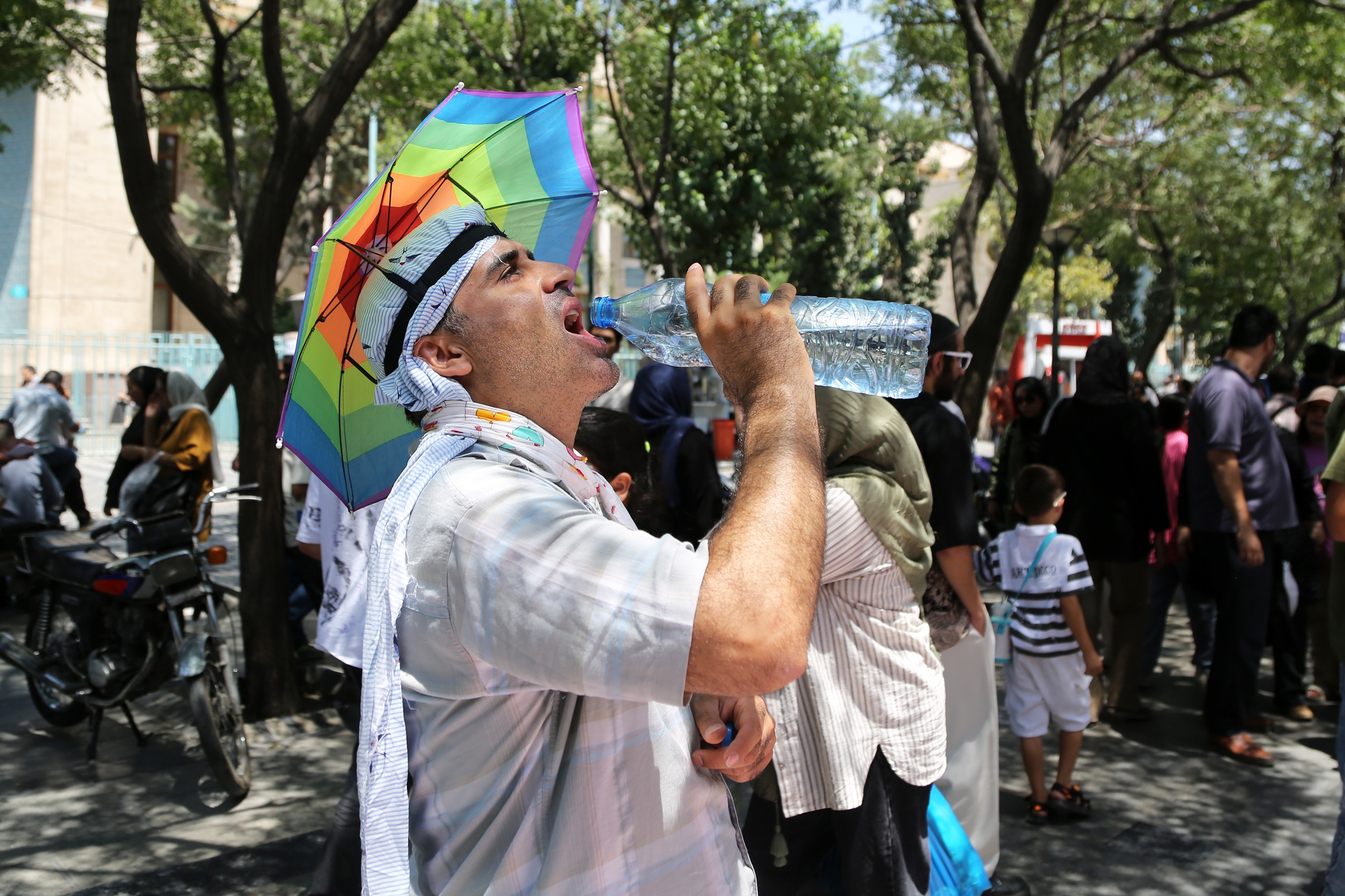OPINION – Wake Up, Tehran: Israel’s Water Tech, Not Nukes, Is Bridge to Peace
Few things in life are as essential as water. Tehran, the capital of Iran, now faces a crisis greater than the US and Israeli missiles that destroyed key nuclear facilities earlier this summer.
During a blistering heat wave, with record-high temperatures reaching 122 degrees Fahrenheit, the city—home to Iran’s economic decision-making—must reconsider its military and defense spending, placing water stability and security at the top of its priorities.
The majority of Iran’s gross domestic product comes from the service sector, where water plays a crucial role.
Iranian President Masoud Pezeshkian recently warned, “In Tehran, if we cannot manage and people do not cooperate in controlling consumption, there won’t be any water in Damascus by September or October.”
A 40% drop in rainfall over recent months, coupled with excessive water use in both agriculture and residential areas, has fueled the crisis.
According to the Atlantic Council, analyst Nik Kowsar attributes the problem to over-pumping groundwater, inefficient farming practices, depletion of resources, and government corruption.
President Donald Trump described it as “their corrupt water mafia—causes droughts and empty river beds. They get rich, but don’t let people have any of it.”
On the streets, water tankers—not military ones—are a common sight, while the wealthy rush to install personal storage systems.
The government’s measures are proving unsustainable, even introducing a new national holiday to create three-day weekends in hopes of reducing water use.
This holiday season, give to:
Truth and understanding
The Media Line's intrepid correspondents are in Israel, Gaza, Lebanon, Syria and Pakistan providing first-person reporting.
They all said they cover it.
We see it.
We report with just one agenda: the truth.


Failure to resolve the crisis could jeopardize food security, economic stability, and basic human needs.
Major reforms have been neglected, and Iran must focus on preserving its own future rather than trying to destroy others.
Israel, an archenemy to Iran, could provide the expertise to make Iran water-secure.
The Jewish state’s advanced desalination, irrigation, and wastewater recycling technologies have transformed it into a water surplus nation, producing 20% more than it consumes. Water flows from the Sea of Galilee to central and southern Israel through a national network.
Treated wastewater, brought to near drinking quality, along with drip irrigation covering three-quarters of its agriculture, has strengthened Israel’s position as a water power.
Regional cooperation already includes the Palestinian Authority and Jordan.
Water sales to Jordan are part of Israel’s obligations under the 1994 peace treaty and were expanded in 2021. Agriculture accounts for just 5% of Jordan’s GDP but uses nearly half its water supply.
In Iran, half the land is unsuitable for farming, with only one-third arable. According to MDPI, a Swiss-based open-source academic publisher, poorly managed government water distribution is a major cause of food insecurity and water instability.
Palestinian and Israeli water authorities jointly manage infrastructure established under Annex III, Article 40 of the 1995 Oslo II Accord.
The UAE, a signatory of the Abraham Accords, also benefits from Israeli research in atmospheric water generation. Like Israel, it leads in desalination but recognizes the need for environmental cooperation and joint programs.
The Emirates engaged in such partnerships even before formalizing ties with Israel and has hosted an Israeli representative at the International Renewable Energy Agency in Abu Dhabi since 2015.
When the October 7 war hopefully comes to a close, the long-anticipated water-for-energy deal could move forward. The trilateral agreement between the UAE, Israel, and Jordan—expected to be reinforced at COP28 in 2023—will see Israel purchase solar power from a Jordanian plant built by UAE’s Masdar, while Jordan acquires desalinated water from Israel.
Last year, Tehran sought to increase its military budget by 200%, but sanctions slashed it by 10%, leaving it at $7.9 billion. These limitations expose a disconnect between Iran’s goals and reality.
Long-term survival depends not on repression but on access to clean water. Without it, the people of Tehran may flood the streets—not in protest of politics, but for the very resource that sustains life.
Comprehensive water management reforms, independent studies, and prevention strategies are urgently needed.
Israel could play a pivotal role in saving Iran from its own mismanagement. Modernized infrastructure, renewable-powered desalination, and large-scale recycling could foster environmental peacebuilding between enemies.
Iran must reassess its priorities, put its people first, and leverage Israel’s water expertise for peace—or wake up to a waterless country, where nukes won’t matter.


